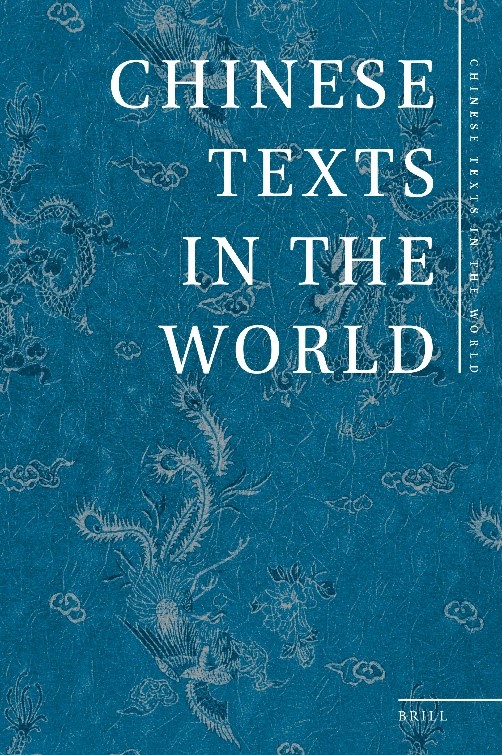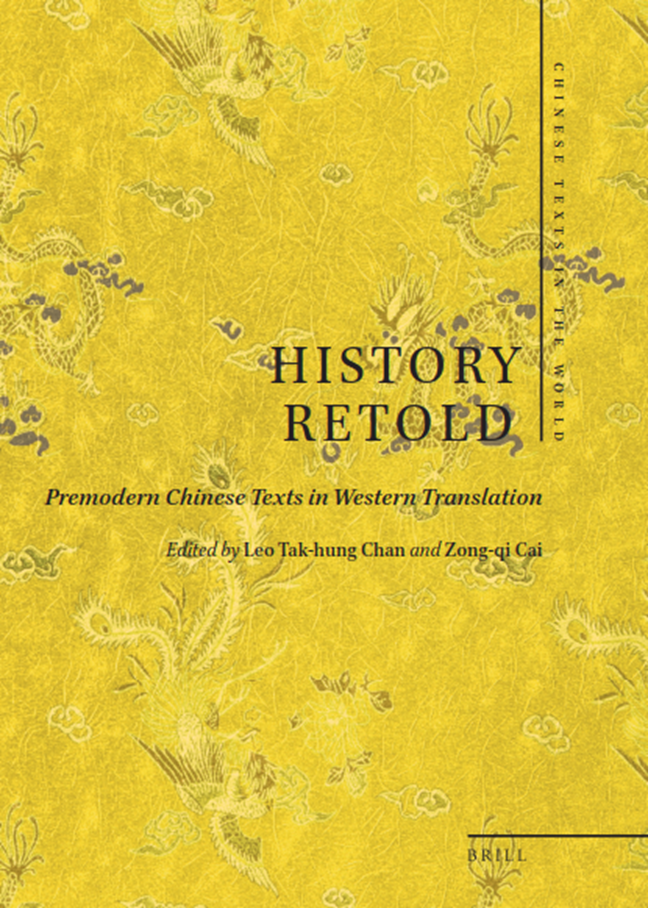Ling U
Ling U
Ling U
Ling U
Ling U
Chinese Texts in the World Series
Introduction
The Chinese Texts in the World series explores the divergent paths taken by Chinese texts as they were transmitted, re-interpreted, reinvented, and further disseminated beyond China in Asia, Europe, Africa, and the Americas. The series will also examine how some of these reconfigured texts made their way back to China, to be reconstituted as culturally polyvalent, hybrid “imports”.
Lay readers, students, and scholars familiar with non-Chinese literary traditions may find hitherto unknown Chinese factors, or new implications of Chinese influence, in such traditions, while students of traditional Chinese learning (so-called guoxue) can explore trends in the re-interpretation of Chinese texts under the influence of Western critical paradigms. The series will also track how translations have shaped perceptions of Chinese culture abroad. Whether they were transmitted along the ancient Silk Road, or through modern digital technologies, such well-travelled texts hold great promise for illuminating multiple aspects of China’s cultural relations with the world.
Two colleagues in the Translation Department are already involved in this book series. Professor Leo Tak hung Chan, currently an honorary professor at CHR, is editing the third volume in the series, and Lin Qingyang, a research assistant professor in the Translation Department, has contributed an article to that volume.
Publisher
- Brill
Website

Published Volumes
The Western Reinvention of Chinese Literature, 1910-2010:
From Ezra Pound to Maxine Hong Kingston
Edited by Zong-qi Cai and Stephen Roddy
During much of China's tumultuous 20th century, May 4th and Maoist iconoclasts regarded their classical literary heritage as a burden to be dislodged in the quest for modernization. This volume demonstrated how the traditions that had deeply impressed earlier generations of Western writers like Goethe and Voltaire did not lose their lustre; to the contrary, a fascination with these past riches sprouted with renewed vigour among Euro-American poets, novelists, and other cultural figures after the fall of imperial China in 1911. From Petrograd to Paris, and from São Paolo to San Francisco, China's premodern poetry, theatre, essays, and fiction inspired numerous prominent writers and intellectuals. The contributors survey the fruits of this engagement in multiple Western languages and nations.
The Western Reinvention of Chinese Literature, 1910-2010:
From Ezra Pound to Maxine Hong Kingston
Edited by Zong-qi Cai and Stephen Roddy
During much of China's tumultuous 20th century, May 4th and Maoist iconoclasts regarded their classical literary heritage as a burden to be dislodged in the quest for modernization. This volume demonstrated how the traditions that had deeply impressed earlier generations of Western writers like Goethe and Voltaire did not lose their lustre; to the contrary, a fascination with these past riches sprouted with renewed vigour among Euro-American poets, novelists, and other cultural figures after the fall of imperial China in 1911. From Petrograd to Paris, and from São Paolo to San Francisco, China's premodern poetry, theatre, essays, and fiction inspired numerous prominent writers and intellectuals. The contributors survey the fruits of this engagement in multiple Western languages and nations.
History Retold: Premodern Chinese Texts in Western Translation
Edited by Leo Tak-hung Chan and Zong-qi Cai
This collected volume focuses on the history of Western translation of premodern Chinese texts from the seventeenth to the twentieth century. Divided into three parts, nine chapters feature close readings of translated texts, micro-studies of how three translations came into being, and broad-based surveys that inquire into the causes of historical change. Among the specific questions addressed are: What stylistic, generic, and discursive permutations were undergone by Chinese texts as they crossed linguistic borders? Who were the main agents in this centuries-long effort to transmit Chinese culture to the West? How did readership considerations affect the form that particular translations take? More generally, the contributors are concerned with the relevance of current research paradigms, like those of World Literature, transcultural reception, and the rewriting of translation history.


